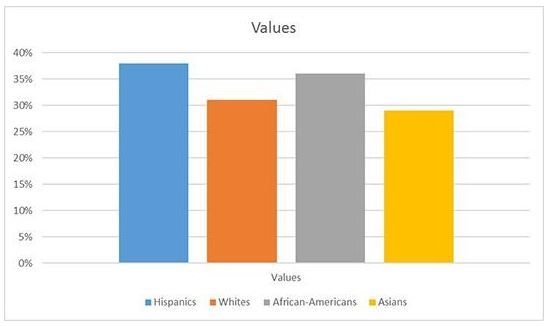Minority Businesses Concentrate In High Growth Industries
Hispanic And African-American Business Owners Concentrate In Top 10 Growth Industries
Total Market and Multicultural sample have reached critical mass in the sample industry. The need for minority B2C sample continues to increase, and more panel companies are including minority sample as part of their recruitment efforts. Despite the increasing demands for minority B2C sample, minority B2B sample is an almost non-existent request.
Business owners are consumers, too, and consumer trends are increasingly becoming business trends. So why the divide? We’ve written about why minority B2B sample isn’t a “thing” yet. But in this post, we’d like to appeal to your logic. That being the business reason to include minority B2B sample in your B2B studies. That reason? Revenue.
First, let’s look at the most common industries in the U.S. by demographic group:
Hispanics make up 15.1% of the construction industry. African-Americans make up 19% of the Health care & social assistance industry. Asians make up 18.6% of the other services industry. Those numbers alone make a good case for B2B companies to understand minority business owners as they are large percentages of their respective industries.
Additionally, if we look at the annual rate of change or growth by industry, you’ll see that Hispanics concentrate at the number 1 fastest growth industry, construction, with a projected annual rate of change of 4.1:
African-Americans concentrate at the 7th fastest growing industry, Healthcare and social services, with a projected annual rate of change of 3.1.
Implications for B2B Sample
The construction and healthcare and social services industries represent significant investments in B2B marketing dollars. As providers of B2B sample, pointing our clients to these numbers would be a value add that would go a long way. We all want our clients to succeed and letting them know about the potential of minority business owners is a win-win.
So what is the opportunity for minority B2B sample in the industries we outlined? Let’s look at the two major industries affected by minority business owners.
Construction
The construction industry has a wide reach of B2B marketing implications from companies like USG to Home Depot, both Fortune 1000 companies with large B2B marketing budgets. Companies like this are constantly looking to understand construction business owners in order to educate and market to them in a relevant way.
Hispanic business owners face a unique set of challenges as minority business owners that when understood can represent a way for these companies to connect with them in a meaningful way. Providing this type of guidance to your B2B client can not only help you make a good impression with your client but also lead to more business for your end client.
Health Care and Social Assistance
The U.S. is confronted with the largest aging population in history, and African-American business owners are stepping up to meet the challenge. Almost 20% of businesses owners in the health care and social assistance space are African-American. Like Hispanics, African-American business owners face a unique set of challenges that B2B companies looking to tap into this market understand.
The spend here rivals, if not exceeds, the construction industry as there are implications from the pharmaceutical industry to medical devices that are dependent on the health care and social assistance sector. If your client does not include African-American business owners, they are missing almost 20% of their audience and potentially billions of dollars of revenue on the table.
Conclusion
I cannot stress enough how the sample industry must move from being order takers to an integral part of the research process. Our industry is threatened by big data and social media analytics. We can set ourselves apart by bringing up demographic shifts that affect our clients’ industries and helping them gain share in a space others are ignoring.
Minority businesses are going to continue to grow in importance. Learning about the impact they have on B2B growth is a way to compete with the changing sample industry landscape.

